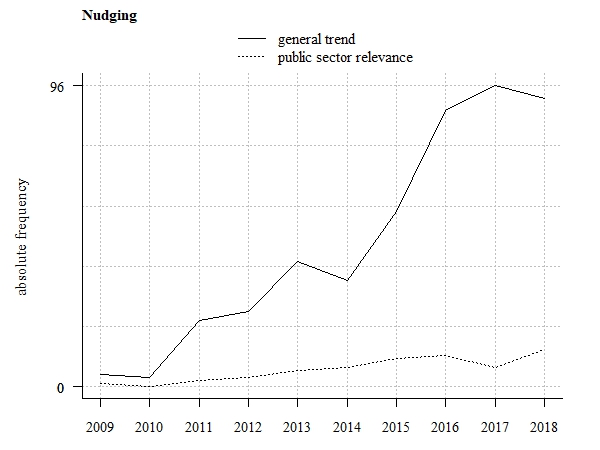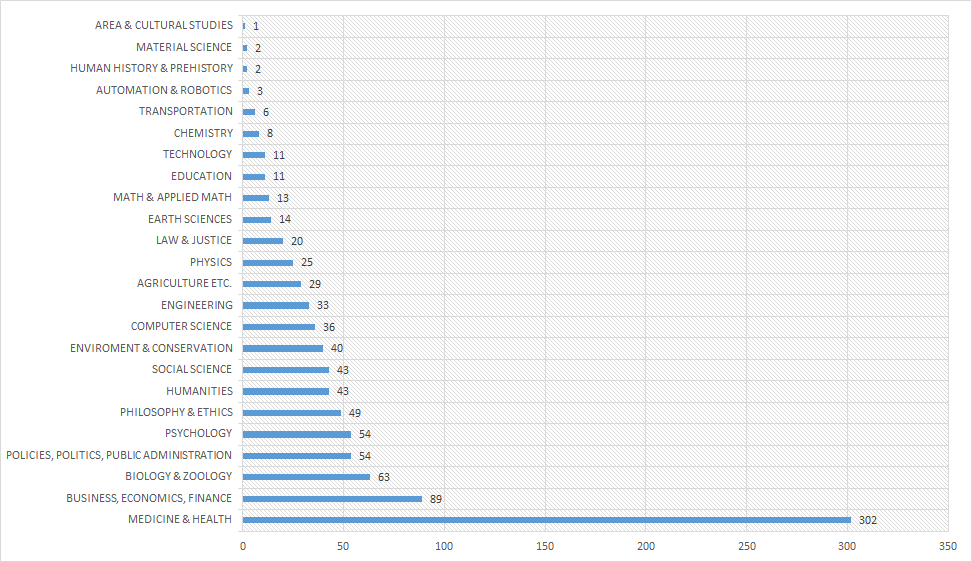Open data - Download the Knowledge base
You are free to download the data of this Knowledge base.
To do this you must be an authenticated user: log in or sign in now.
All the data are licensed as Creative Common CC-BY 4.0.
Nudge or Nudging in governmental context can be seen as a concept of libertarian paternalism, which is about improving decision making. Nudging comes from the behavioural economics and the basic assumption is that people are not able to make the right decisions. Therefore, the behaviour of individuals should be influenced in a predictable way. Experts decide what is the best possible decision and try to steer the people into this direction. The people still have the option to choose an alternative, which makes this concept different to classical paternalism. [1]
Instead of intervening massively in people´s freedom of choice through prohibitions and taxes, nudging is an instrument to strengthen the impact of political activities and campaigns e.g. in terms of consumer protection, fight against corruption or financial market regulations. [2]
Over the last years, more and more Behavioural Insights Teams have been formed to find ways to improve governmental policymaking and public service, for example, in the United Kingdom and the United States of America. [3]


| Agenda Setting | Policy Design and Analysis | Policy Implementation | Policy Monitoring and Evaluation | |
|---|---|---|---|---|
| Agriculture, Fisheries, Forestry & Foods | ||||
| Economy & Finance | ||||
| Education, Youth, Culture & Sport | ||||
| Employment & Social Security | ||||
| Environment & Energy | ||||
| Health | ||||
| Foreign Affairs and Defence | ||||
| Justice, Legal System & Public Safety | ||||
| Public Affairs | ||||
| Innovation, Science & Technology | ||||
| Urban Planning & Transport | ||||
| Institutional Questions / Internal Affairs |
You are free to download the data of this Knowledge base.
To do this you must be an authenticated user: log in or sign in now.
All the data are licensed as Creative Common CC-BY 4.0.